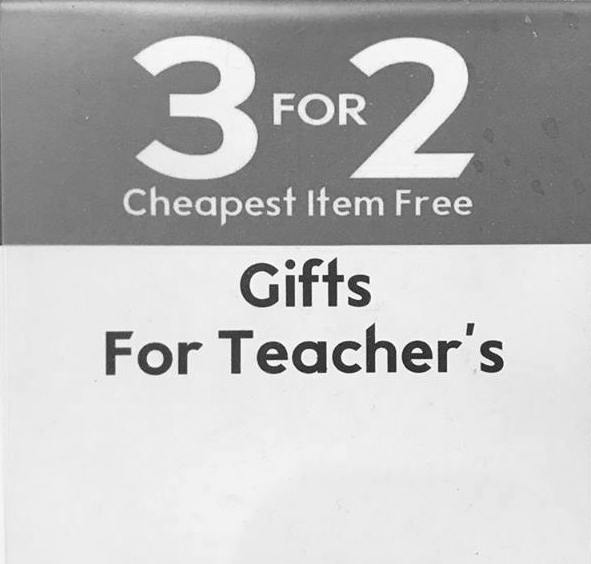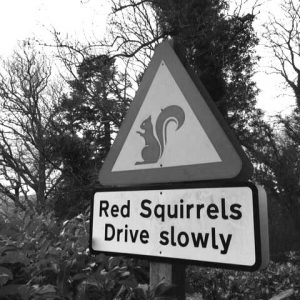Writing the book on freelancing… quite literally!

Fellow freelance copywriter, Nigel Graber interviewed me on the launch day of my new book, Survival Skills for Freelancers, and shared the post in the Copywriter Stories segment of his website. Did he get any sense out of me on the most exhilarating day of my career?! Here’s the interview…
“I always thought legendary Cotswolds copywriter and editor Sarah Townsend wrote the book on freelancing. But now she’s actually gone and done it. It’s even been released on National Freelancers’ Day. Let’s turn some pages.”
Oh, you can’t imagine. It’s like a milestone birthday and Christmas all rolled into one. Everything has been leading up to this day for so long, and I can’t wait to see how well Survival Skills for Freelancers performs out there in the real world! Can’t say I’m quite as excited about the inevitable adrenaline crash that will follow, but hey – it’s all good!
Did you always plan for publication on National Freelancers’ Day?
I did. There are five million self-employed workers in the UK right now, and over two million of them are freelancers. That’s a lot of us going it alone with very little support. I needed a publication date to focus on, and National Freelancers’ Day seemed like the perfect date.
What inspired you to write it?
Last year I wrote a blog sharing the things I’d learned from 20 years of freelance life. It proved to be by far my most popular post, and generated an overwhelmingly positive response.
People loved the honest, no-frills advice, combined with the heart-on-your-sleeve confessions. I realised I could use my experience to create an indispensable guide to the highs and lows of self-employment. A book that 29-year-old me would have loved at the start of my own freelance journey.
Does it deal with freelancing in general or is there a bias towards copywriting and editing? Is it as useful for, say, a freelance web designer as it is for a copywriter?
It’s very much aimed at freelancers in general. While the anecdotes and stories relate to my experiences as a freelance copywriter, the advice is relevant to anyone who’s already self-employed, or who’s thinking of going solo.
What else can we expect?
It provides advice on the issues we all experience as freelancers, such as:
- Strategies to deal with isolation
- Knowing your worth – and what to charge
- Trusting your instinct, and learning to say no
- Achieving balance and avoiding burnout
- The importance of investing in your business
- The qualities that help you survive and thrive as a freelancer.
It’s a crowded market. What do you think makes your book different?
Think of all the books you’ve ever read on copywriting. Do you ever say to yourself, “I enjoyed Copywriting ABC, but it was just like Copywriting 123!”? I doubt it. That’s because no two journeys, no two voices, and no two approaches are the same. So yes, there are other books on freelance life out there, but none quite like this one.
I didn’t want Survival Skills for Freelancers to feel like a conventional business book. Yes, it’s packed full of tried-and-tested strategies and practical advice, but it’s more than that. I wanted it to feel collaborative and supportive – like I was there on the journey with you.
Fellow copywriter Anna Gunning sums it up as being, ‘like having your own personal business mentor’, while my first ever Amazon review said, ‘Reading this book was like settling down with a good friend for a business chat’. I actually teared up when I read it because that’s exactly how I wanted it to feel.
How long did it take to write? And how many hours per day?
I had the idea at the end of last year and I’m publishing in mid-June, so I guess it took about eight months from start to finish.
I know people who’ve spent years conceiving, writing and publishing their books but that wouldn’t have worked for me. The only way I know how to do something is full on, 100 miles an hour. I’ve lived and breathed the book, the publishing process and the marketing for the past four months – possibly longer.
It’s ironic that it’s about balance and boundaries, because – particularly in the past couple of months – mine have gone out of the window. Yes, having a deadline has kept me laser focused, but I’ve found myself so engrossed in – and energised by – the writing, editing and sheer learning involved that I may, occasionally, have forgotten to look after myself. I imagine I haven’t been that easy to live with recently!
Did you have to put your day job on hold?
I set myself the goal of getting the first draft written by the end of January, and I gave myself a month off client work so that I could get it done. So yes, I did. For the past few months, and throughout lockdown, I’ve been juggling client work and book work. That’s been tough. Really tough. But I am SO happy with the end result that the long days have been worth it.
What did the writing process look like?
Actually, much the same as any copywriting job, but on a far grander scale. I’m (generally) hyper organised, and I think you have to be to make a success of this process. I started with thoughts, ideas, and a structure. I wrote, I edited, I revised the aforementioned structure… rinse and repeat. It’s like any writing job, I think. You start with all the elements and gradually fit them together in the right order, like a giant jigsaw puzzle.
Was there much research involved or was it all stored in your head?
It was a pretty good balance of stuff I needed to research and stuff I knew inside out. It’s very much written from the perspective of my own experience, so that bit was easy!
Copywriters are a friendly bunch. Did you get much help from the community?
They really are. Without the support of the freelance community, Survival Skills for Freelancers would be a very different book! Each chapter ends with quotes and opinions from freelancers on everything from impostor syndrome and what to charge to the importance of connection and when to say no. It also includes mini case studies from copywriting legends such as Nick Parker and Graeme Piper.
Many of my copywriter friends are helping me to spread the word about the book because they believe in the importance of what I’m trying to achieve. They’ve been sharing pics of the book and reminders of the launch date all week. They’re amazing! So supportive.
What made you go down the self-publishing route?
I knew exactly what I wanted the book to look and feel like, and exactly how I wanted it to be structured. I would have struggled with not having complete control over cover design and content, so I knew from day one that I would self-publish!
What effect would you like the book to have?
I’d like it to help people get more enjoyment from self-employment. There’s a lot to love about freelance life, but it can be tough, too! I’ve been through a lot in my 20 years as a freelancer. I’ve done things that worked, and things that didn’t, and it took me a long time to get to a point where I felt like my own success was sustainable. Readers can use what I’ve learned to fast-track their own freelance success and make fewer costly, time-consuming mistakes in the process.
What advice would you give any other aspiring authors?
Acknowledge that it’ll take a LOT of time – and that there’s a lot more to the process than just being able to write. Within a month of getting started, I had an A4 folder that was two inches thick with information: print quotes, freelancer quotes, research, resources, useful articles, marketing tips… And I have over 400 documents in the Survival Skills for Freelancers folder on my Mac!
If you’re planning on self-publishing, be prepared to do your research – there’s heaps of information out there – and don’t be afraid to ask colleagues who’ve been through the process for advice.
Brilliant. Finally, how can we get hold of a copy?
Survival Skills for Freelancers is available from Amazon in paperback and Kindle formats, and there’s more information at survivalskillsforfreelancers.com. I’m all set to record the audiobook, too – just need to find the time to do it!
Tips and tricks for a happy, healthy freelance life (an interview with ProCopywriters)

I recently took part in a live, one-hour interview with ProCopywriters, the professional association for copywriters in the UK.
We chatted about the wellbeing aspects of freelance life – dealing with the ups and downs, as well as the importance of boundaries, community and asking for help – and I shared tips to help freelance copywriters become more successful with less stress and burnout.
The interview touched on some of the tips and topics that are covered in my new book – Survival Skills for Freelancers. Here’s a transcript.
Q Welcome to #ProCopyChat, Sarah! Please tell us a bit more about yourself.
A Hello! I’ve been a freelance marketing copywriter for over 20 years. I love freelance life, but I reckon it took me the best part of 15 years to get good at the business end of it – and I made a lot of mistakes along the way.
I’ve now written a book for freelancers – Survival Skills for Freelancers – to share my experience and help freelancers reach their definition of success a whole lot quicker than I did!
Q Sounds great! Can you tell us a bit more about the book for freelancers, and how it came about?
A Sure! So, most of us decide to go freelance because we have a skill we want to share. But in most cases, we’re unprepared for how relentless the business end of freelance life can be, let alone the challenges it can present to our mental health!
The book is designed to help freelancers become more successful by working smarter, not harder. I’m hoping readers will learn from the things I’ve done that worked as well as the things that didn’t!
It’s a combination of heart-on-your-sleeve anecdotes and tried and tested advice based on my own experience, backed up by research, resources and quotes from the freelance community.
Q How and why did you become a freelancer?
A I was working as an editor and account manager for a magazine publisher in Clifton, Bristol when I became pregnant. I knew I didn’t want to go back to full-time work, and liked the idea that I could fit freelance work around family life. My employer promised to provide the odd piece of work, so it seemed like a good decision.
I worked on my brand and sent out cold enquiries while I was on maternity leave, then worked three days a week while my daughter was at nursery. My business grew as my family grew. And here I am – now with grown-up kids – still loving freelance life.
Q4 What do you believe are the most important qualities to make it as a freelancer?
A Good question! I don’t think you have to be a particular type of person to make a successful freelancer. There are always exceptions. But there are traits that help and others that hinder. Skills and talent alone aren’t enough to guarantee success.
It helps if you’re determined, motivated, organised, ambitious, disciplined, confident, outgoing, flexible, reliable, personable, patient, thick-skinned… it’s a pretty long list!
Q What would you say to anyone reading that list who knows they don’t have all those qualities?
A I’d say don’t worry too much. No one will tick off every quality on the list. If you don’t have any of them, you might struggle more than most, but I’m neither patient nor thick-skinned and I haven’t let that hold me back!
Q Isolation is a real challenge for many freelancers. How do you recommend we deal with it?
A It absolutely is. So many of the freelancers I’ve talked to loved the idea of working from home but found themselves completely unprepared for the loneliness! It’s easy to feel like no one understands what you’re going through – but they do!
Connection is vital when you’re freelance, and there are three fundamental ways to find it:
- online communities (like this one, or the many Facebook groups that exist for freelancers)
- networking groups and events
- coworking spaces and coffee shop working
The great thing about the online community is that – under normal circumstances, at least – it spills out into real life with events and conferences. This means it’s possible to make great real-life friendships with people who are in the same boat as you, and who really get it.
We may be facing a temporary ban on face-to-face networking and coworking, but many groups are already taking their meetings and events online and getting great results. And, of course, we won’t always be facing the unprecedented situation we’re in right now, with COVID-19.
Q How have you dealt with the unpredictability of freelance life over the years?
A I don’t think you ever really get used to the peaks and troughs of freelancing. Quiet spells are pretty rare for me now, but I still keep a list of projects I want to work on, blogs I want to write and books I want to read, in case work does drop off.
Having too much work can be just as problematic as not having enough, though. Either you work yourself into the ground, boundaries go out the window and your mental health suffers as a result, or you can do what I do – have an arrangement with a small team of trusted freelancers who you can pass work on to when you need to. You’re solving the problem for your client and helping another freelancer into the bargain.
Q There’s a lot of talk about imposter syndrome. Do you suffer from it, and how do you deal with it?
A Yes, absolutely – even now! Self-doubt can hold you back if you let it, so don’t let the fear of failure get in your way. Celebrate your wins – even the little things – so you can see how far you’ve come. And don’t compare yourself to others!
It’s easy to put things off if you keep striving for perfection but know this: there’ll never be a right time and you’ll never be completely prepared. Just do the best that you can do. Sometimes good enough really is good enough.
Q You have a chapter in your book about avoiding burnout. Can you share a few tips here?
A Of course! This is something I feel very strongly about and I go into a fair bit of detail about it in the book. In a nutshell, it’s about setting boundaries, asking for help, learning to say no, and taking simple steps to look after yourself.
It takes time to learn what works for you, but most people need fresh air, exercise, a balanced diet and decent quality sleep as a minimum. It sounds obvious, but if you’re not feeling your best you can’t do your best work.
Above all, it’s important to know it’s okay not to be okay. You’re not alone, you’re not the only one who feels this way, and you are perfectly normal. Respect your boundaries, prioritise your own wellbeing, and keep talking!
Q When and where can we get hold of your book? And will you be promoting it at any freelance events in the future? (Coronavirus permitting!)
A My book for freelancers, Survival Skills for Freelancers launched on 18 June, and is available on Amazon in paperback, Kindle and soon to be audiobook formats.
As for events, I have a few podcast interviews lined up and I’m always keen to do more. Ultimately, I’d love to speak on wellbeing and mental health for freelancers. (Spread the word if you know any event organisers who might be interested!)
Environmental policy? Behave – I’m a freelancer!

Does your business have an environmental policy?
I don’t mean some going-through-the-motions greenwash document that you write and then forget about. I mean a proper commitment to reducing your impact on the planet.
“I’m a freelancer. What’s the point? I can’t make a difference on my own!”
Tell me about it.
Truth be told, I’m a bit of an eco worrier. And no, that’s not a typo.
I find David Attenborough docs almost too hard to bear these days, let alone some of the hardcore stuff shared by environmental activists such as Extinction Rebellion.
It’s so easy to decide there’s no point trying.
But just the process of thinking about the things you do each day can lead to positive changes.
Me, myself and I
I wrote my own one-page environmental policy a few years ago. And while these things are embedded in my day-to-day routine, the summary itself has never seen the light of day.
The idea of sharing it made me feel a bit cringey and uncomfortable.
Isn’t it a bit… worthy?
But then I heard a talk at a local networking event, and it got me thinking.
If I can get over myself and share the steps I’m taking to be more sustainable, maybe it’ll encourage others to do the same.
So here’s my utterly-imperfect-but-it’s-a-start commitment to treading lightly.
(Even if it does still make me cringe just a little bit.)
Sarah Townsend Editorial Limited
Environmental policy
I am committed to operating my business in a way that is mindful of the environment and to taking action to keep my impact on the earth’s resources to a minimum.
To help me do this, I promise…
- to buy 100% renewable electricity from Good Energy*
- to generate my own electricity using solar panels
- to make my next lease car 100% electric (it’s on order!)
- to use public transport to attend meetings and events wherever possible
- to work from public spaces rather than heat my home
- to recycle all paper, ink cartridges and other recyclable materials
- to make a monthly donation to UK environmental charity, the Woodland Trust
- to minimise the amount of paper waste I produce by only printing documents when necessary, and always using both sides of the paper
- to always stick on an extra layer before putting on the heating (I’m a big advocate of double tights and double socks!)
- to use recycled paper for the printing of any business stationery
- to minimise my use of water and energy, to reduce my carbon footprint
- to ensure coffee, tea and the other important things that get me through the day are Rainforest Alliance Certified
- to have video meetings where possible, to avoid the carbon cost of travel
- to work with suppliers who share these values, where possible
I know there’s more that I can do – there’s always more that we can do – but it’s a step in the right direction. I hope it inspires you to make small changes to lessen the environmental impact of your freelance business.
*If anyone is thinking of switching to Good Energy and you use this link to sign up, we’ll both get £50. And if you let me know you’ve signed up as a result of reading this post, I’ll donate £25 to the Woodland Trust.
Copywriting and marketing support for a superyacht events company

The client: Asaro
Founded in 2012, Asaro create extraordinary events for guests travelling on luxury yachts around the globe.
They work with captains and crew of superyachts and mega yachts to create and deliver unforgettable experiences – from Ancient Olympic-style games in Greece to epic pirate adventures – that show their clients the world in a whole new light.
The need
With a small but solid base of repeat clients, George and Kirsty Brooks, founders of Asaro, were ready to increase awareness of the unique services they provide.
Their aim was to attract a new and wider audience of forward-thinking superyacht captains looking to transform their events programmes and exceed the expectations of their guests.
With marketing to the superyacht industry holding its own set of distinctive challenges, due to the privacy and discretion of the clients involved, how could they go about this?
The solution
I was introduced to George and Kirsty by brand specialist Paul Barrett, who had already done some in-depth work with Asaro to establish where they were as a brand and where they wanted to be.
My brief was to write Asaro’s new website, brochure copy and case studies, after starting with some initial messaging work to establish their new tone of voice (TOV), and producing helpful guidelines for Instagram postings.
Messaging strategy and tone of voice guidelines
I began by creating comprehensive TOV guidelines that focus on using powerful and emotive language to show potential clients how it felt to be part of an Asaro experience, rather than telling them.
I also went into some depth to describe who Asaro are as a brand, the way language supports their brand pillars, a guide to using plain English, and examples of their new TOV in action.
TOV guidelines were supported by a detailed house style guide – which covers everything from using the active voice and contractions to the formatting of dates – so that anyone writing about Asaro can do so in a consistent manner.
Website and brochure copywriting
Once the guidelines were approved, Paul and I met with Asaro’s chosen design agency, Green Chameleon in Bristol, to discuss the design approach for both the website and brochure.
Writing copy based on the tone of voice guidelines I’d created, we worked closely with George and Kirsty to create a stunning website and high-end brochure, plus standalone case study cards that brought to life each of the four types of Asaro event.
Positive feedback
George and Kirsty were delighted with the end result, and showcasing their new brochure and case studies at the 2018 Monaco Yacht Show generated some very encouraging feedback from the superyacht industry.
The project was a perfect example of how a small team with big ambitions and a fabulous service offering can benefit from bringing in experienced consultants to support their marketing, instead of expanding their own team.
Just weeks after its launch, the new website was awarded both the CSS Design Awards and AWWW awards for website of the day.
In the client’s words…
“Sarah recently supported us on our brand evolution project, which included reworking and rewriting a healthy amount of web copy for our new website, our new brochure and also a very helpful set of tone of voice guidelines and Instagram tips for our team.
“It was our first time working with Sarah, but she quickly got to grips with our core services and turned this into brilliant copy and was then very patient and flexible when working with us and our appointed design agency to deal with changes.
“We felt confident leaving this project with Sarah as she exudes positivity and passion for her craft, and showed a real interest in what we do and how to best present us.
“We’ve already had brilliant feedback for our new website, which we know is down to a combination of brilliant design and compelling copy.”
Kirsty Brooks, Founder and Director, Asaro
asaro.co.uk
The viral accident: lessons from a Facebook post gone mad

This summer a happy accident led to a post on my Facebook page going viral. I mean crazy popular.
Now the dust has settled, there are lessons to be taken from having a post reach over 275,000 people – and if anyone can benefit from my experience I’m happy to share. I’m nice like that.
Credit where it’s due
Like many of the gems I post on social media, I can’t take credit for finding this one*. People often tag me with mistakes they’ve spotted (“Hey – saw this typo and thought of you!”) It’s not the most romantic of gestures but it means I have a limitless supply of examples of bad spelling and grammar. Awesome.
The most viral a post of mine has ever gone was when the sign opposite was picked up by The Poke on Twitter a couple of years back. That picked me up a good few followers, I can tell you.
When I shared the Waitrose typo, it was met with the Twitter equivalent of tumbleweed – fewer than half a dozen retweets.
Lesson one: just sometimes, Facebook > Twitter.
Undeterred, I decided to share the typo on Facebook as shown above. It took perhaps a day to pick up momentum, then…
Did I just go viral?!
Like a ball bearing careering around a pinball machine, things quickly went a bit mental. In what I can only assume was down to a sweet spot of timing and relevance – I shared the post on what was, for many teachers, the last day of the summer term – it hit a tipping point.
Lesson two: timing is key.
People who saw the post reacted in the same way as my friends and peers when they spot a typo: they tagged teachers they knew (and let’s face it, everyone knows at least one) with a “You have got to see this!” eagerness.
Once I realised what was happening I edited the post, adding “Gold star for you if you tag a teacher who’ll appreciate this post”. It did the trick, and the momentum Just. Kept. Going.
Lesson three: keep an eye on response and tweak your posts if necessary. Add in a relevant way to encourage people to share if you can.
Scanning 600-odd comments, it seems most people were shocked it was Waitrose that made the mistake. Had it been one of the cheaper supermarkets – you know who I’m talking about – would the post have had the same impact? Maybe not.
Lesson four: the more well-respected the business, the higher the expectation that they can spell. Companies who can’t, beware.
When the post began to gain momentum I was out catching up with my social media friend and colleague, Azaria Timms.
Having chatted to her about the post over a cheeky glass of fizz, I decided to boost it to a targeted audience of teachers. It was the first time I’d promoted a Facebook post, and I’ll be honest, I expected great things – even for a lowly… cough… £6.
As it happened, the boost increased the reach by just 330 people, with one major downside: a guy I don’t know and have never worked with took such offence at my promoted post he decided to leave me a one-star rating for – in his words – spamming him. Ouch.
Lesson five: people still have mixed reactions to advertising.
If you only take one thing from this article, make it this trick: when you click the list of people who’ve commented on a Facebook post, you’re given the option to invite that person to like your page. Inviting everyone who’d commented or shared the post netted me over 150 new followers in a week – compared to a previous weekly high of, err, three. Skills.
The flipside was a stroppy message from one lady who replied, “No thank you, I have no need for your services and no interest in becoming your friend”. Err, okay…
Lesson six: don’t expect everyone to understand the difference between a Facebook page and a Facebook profile. And remember – you can’t please all of the people, all of the time.
As for Waitrose – yes, I tagged them in the post, and no, they didn’t respond. Given the reach of their own posts, I’m putting their lack of comeback down to jealousy of my superior social media skills. (Jokes.)
*Credit for sharing the original post is due to my good friend and reptile guy, Steve Jack. He’s @seashaker on Twitter, in case you’re interested. Expect snakes. And spiders. Don’t say I didn’t warn you.






